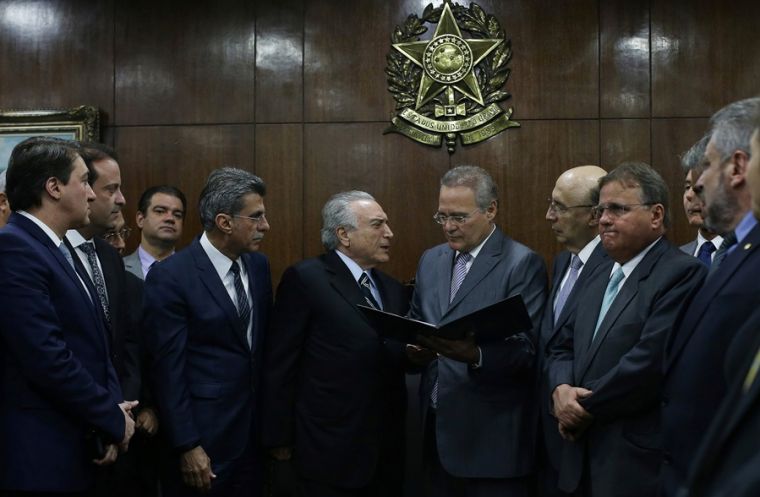Acting Brazil president names evangelical leaders to top government posts amid crisis

Amid the political turmoil in Brazil, evangelical Christians are reportedly being brought to the forefront of the political arena as a new government takes provisional charge of the country.
Acting President Michel Temer has appointed evangelical leaders to high-ranking posts after taking over the post from sitting president Dilma Rousseff, who was booted out following accusations of doctoring public finances to hide the country's alleged growing deficit, reports Newsmax.
The 75-year old interim president chose an evangelical bishop ''who believes in creationism" to be his top science official and then made him trade minister. The new labour minister is also an evangelical pastor, according to a report by the Washington Post.
Temer, who is expected to serve the country for 180 days or until the trial period of Rousseff is over, reportedly turned to evangelical Christians in a bid to immediately repair the damage inflicted upon him after he was falsely accused of being a devil worshipper.
Many of the pastors who supported him belonged to the so-called "Evangelical Bloc," some of whom were the strongest backers of Rousseff's suspension.
But just like Rousseff, Temer is also widely distrusted by the Brazilian people, with fewer than 10 percent of the citizens wanting him to become their president, according to surveys.
"They [evangelical leaders] have more political influence than ever, and they are going through a moment in which they're asserting their power,'' political scientist and sociologist Paulo Baía told the Washington Post.
The South American nation has suffered its worst economic decline, with high rates of unemployment and inflation, making it unattractive for investors. According to critics, Rousseff's alleged manipulation of financial data ahead of the presidential elections in 2014 only made things worse, although she denies any wrongdoing.
A Pew Research Center study in 2010 showed that 65 percent of Brazil's residents were Roman Catholics, making them the largest religious group in the country.
However, 22 percent of Brazilians identify themselves as evangelical Christians, up from 5 percent in 1970.
Many evangelical pastors work in the country's remote rural areas and violent slums in the cities, where government is often absent. This allows pastors to mobilize voters at election time.
Moreover, unlike their Catholic counterparts, the evangelical pastors are more explicit in making political endorsements, said Baía. "They speak clearly in favour of their candidates and even campaign for them," he said.
There is also an "Evangelical Bloc" in the Brazilian Congress. Of the 94 evangelical lawmakers, 89 reportedly voted to put Rousseff on trial. Many of these lawmakers dedicated their votes "to God'' in the nationally televised proceedings, according to reports.











